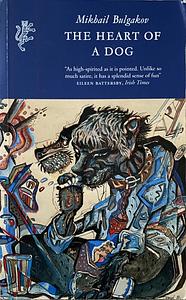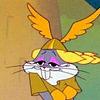You need to sign in or sign up before continuing.
Take a photo of a barcode or cover
funny
reflective
medium-paced
Plot or Character Driven:
Character
Strong character development:
Yes
Loveable characters:
Complicated
Diverse cast of characters:
Yes
Flaws of characters a main focus:
Yes
dark
funny
fast-paced
Plot or Character Driven:
A mix
Strong character development:
Complicated
Loveable characters:
Complicated
Flaws of characters a main focus:
Yes
There is a photograph of me sitting in a gutter in Paris reading this novel. I am rather skinny in the photo. What isn't conveyed is that I was losing my mind. I was abroad and it was a mistake. There was considerable business requiring my immediate attention back home.
There I was. All was resolved upon my return. I think about the novel periodically, especially given the currency of Bulgakov in certain circles.
It would be pithy to suppose that this portal concerning transformation was crucial in my own adjustment of status. It wasn't, but that's life.
There I was. All was resolved upon my return. I think about the novel periodically, especially given the currency of Bulgakov in certain circles.
It would be pithy to suppose that this portal concerning transformation was crucial in my own adjustment of status. It wasn't, but that's life.
challenging
dark
funny
fast-paced
Plot or Character Driven:
A mix
Strong character development:
No
Loveable characters:
No
Diverse cast of characters:
Yes
Flaws of characters a main focus:
Complicated
adventurous
challenging
dark
funny
reflective
sad
tense
medium-paced
Plot or Character Driven:
A mix
Strong character development:
Yes
Loveable characters:
No
Diverse cast of characters:
Complicated
Flaws of characters a main focus:
Yes
Previously, Bulgakov has never resonated with me to the extent he seems to with most so I was surprised by just how superb this work was and how much I enjoyed it. The tone and voice of The Heart of a Dog is at once bawdy and acerbic, surreal and absurd, and garish and deeply disturbing. As a satirist, Bulgakov possesses a ruthlessness delivered so delicately and deftly few match it - Swift, Hašek, Cervantes, and perhaps John Kennedy Toole are the only ones who immediately spring to mind.
In this book, Bulgakov displays a pitch-perfect capacity to balance the universal and the particular, creating a satire that rings through time as both a scathing critique of early Soviet society and a broader indictment of human folly. Both the Professor and Sharikov are brilliantly conceived, gross caricatures who operate as numerous revolutionary archetypes and personalities. On the one hand, Sharikov is a scathing parody of Homo Sovieticus or the New Soviet Man, of the revolutionary grifters, the vagrants, the dregs of society, who are set to gain everything by manipulating the new social order. Yet, Sharikov it's far more than that because, in becoming a human, he develops all the pitfalls of human nature - our greed, cravenness, and depravity - so much so that the reader is left to wonder whether it is the heart of humans or the heart of dogs where we should look for virtue and fidelity. Bulgakov, it seems, thinks we display a fatal arrogance when we assume we are so civilised and so far removed from animalistic, primal behaviour:
In this book, Bulgakov displays a pitch-perfect capacity to balance the universal and the particular, creating a satire that rings through time as both a scathing critique of early Soviet society and a broader indictment of human folly. Both the Professor and Sharikov are brilliantly conceived, gross caricatures who operate as numerous revolutionary archetypes and personalities. On the one hand, Sharikov is a scathing parody of Homo Sovieticus or the New Soviet Man, of the revolutionary grifters, the vagrants, the dregs of society, who are set to gain everything by manipulating the new social order. Yet, Sharikov it's far more than that because, in becoming a human, he develops all the pitfalls of human nature - our greed, cravenness, and depravity - so much so that the reader is left to wonder whether it is the heart of humans or the heart of dogs where we should look for virtue and fidelity. Bulgakov, it seems, thinks we display a fatal arrogance when we assume we are so civilised and so far removed from animalistic, primal behaviour:
'I'm sorry, professor, not a dog. This happened when he was a man. That's the trouble.'
'Because he talked?' asked Philipp Philippovich. 'That doesn't mean he was a man."
After all, we can't create men, mould them from scratch, and this, of course, was one of the greatest follies of the Soviet project - and really any utopian project - which denies the uncomfortable realities of human nature. We can't shape men into some idealised form. They are products of both their natures and environments. Sharikov is a self-interested creation who, upon becoming human, is all to quick to demonstrate the naked self-interest which exists within human beings in general and internalise the cynical forms of manipulation which exist in the system around him.
The Professor seems to be, at once, a well-groomed - and even strangely likeable - holdover from the Imperial era, self-important and haughty but cultured and undeniably gifted. In other words, a potential reactionary if one ever existed, more concerned about his damask curtains than his fellow proletarians. Yet, the Professor, with his unerring faith in the ameliorative power of science, is no innocent victim. In creating Sharikov, he goes to war with nature and transgresses boundaries which should not be crossed. He is, on balance, a decent man: polite, civilised, though out of touch. Yet, his faith in abstractions like 'progress', 'science', and 'etiquette'. The unwillingness of men like him to make concessions initially or to recognise the danger of the forces they are creating and unleashing is a stark warning. Revolutions do not solely occur because insurgents seize power, but also because others, whether out of naïveté or complacency, allow them to do so. The Professor's tale is murky and evinces how good but misguided intentions have unintended consequences, all too often allowing the coarse and brutish among us to wield power. Like the Professor, Bulgakov believed in decency, moderation, and reasonableness:
Kindness. The only possible method when dealing with a living creature. You'll get nowhere with an animal if you use terror, no matter what its level of development may be. That I have maintained, do maintain and always will maintain. People who think you can use terror are quite wrong. No, no, terror is useless, whatever its colour – white, red or even brown! Terror completely paralyses the nervous system."
"Nobody should be whipped. Remember that, once and for all. Neither man nor animal can be influenced by anything but suggestion."
Perhaps, however, the most resounding message of this book is that there comes a time when kindness will only get us so far and when confronted with the most cynical and malevolent manifestations of human nature, we must abandon some of our scruples so that we can one day have any at all.
In spite of the darker tone this review has taken, this book, I should add, is uproariously funny. It may function as a grim parable, but it is a comic odyssey and Bulgakov's prose and characterisation is vivid.
I find this book is hard to read due to my limited English skill. The book has a good premise that makes me curious, so I give more effort to finish this book.
I think that this book has a lot of gray areas. The professor is an anti-communist, but he can live in a big apartment because he is the doctor of RCP leaders. He is truly a brilliant scientist, but is it okay to manipulate life like the way he does? The dog, Sharik, becomes Sharikov when he becomes a man. Even though he is a bad person, I can't hate him, because I don' think he is fully human. So, human morality can't be applied to him.
250217BDG
I think that this book has a lot of gray areas. The professor is an anti-communist, but he can live in a big apartment because he is the doctor of RCP leaders. He is truly a brilliant scientist, but is it okay to manipulate life like the way he does? The dog, Sharik, becomes Sharikov when he becomes a man. Even though he is a bad person, I can't hate him, because I don' think he is fully human. So, human morality can't be applied to him.
250217BDG





